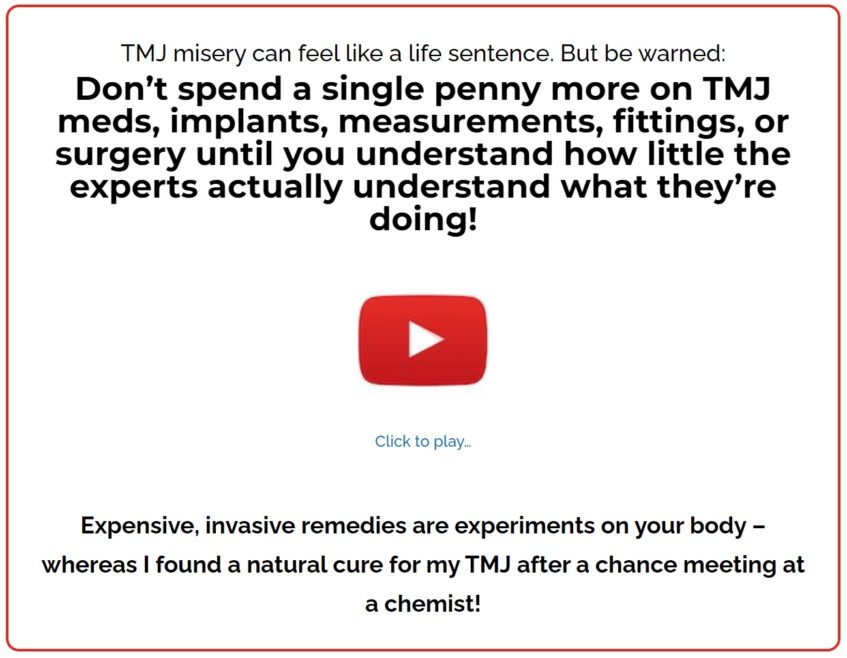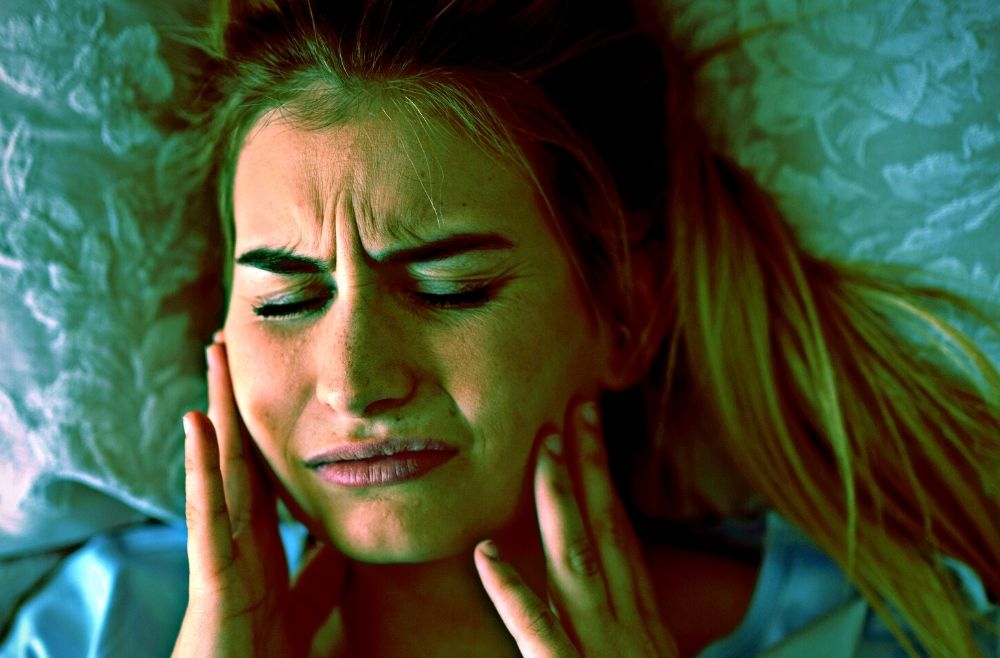Don’t let a popping jaw ruin your day. Learn what to do when jaw pops with these easy tips. Read our complete guide.
What To Do When Jaw Pops
Temporomandibular joint disorder (TMJ) is a common condition that affects millions of people worldwide. One of the hallmark symptoms of TMJ is jaw popping, which can be accompanied by pain, discomfort, and difficulty moving the jaw.
While it may seem like a minor issue, chronic jaw popping can have serious consequences if left untreated.
This article will provide an overview of what to do when jaw pops; we will discuss TMJ and explore the causes, prevention strategies, exercises and remedies for relief, as well as professional treatment options available.
Understanding the underlying causes of TMJ is crucial to effectively managing this condition. The root cause could be anything from injury or arthritis to infection or tumors. Identifying the cause can help in developing an effective treatment plan that addresses not just the symptoms but also their underlying cause.
This article will delve into these potential causes and how they manifest as jaw popping and other associated symptoms such as tenderness in the face or jaw, difficulty opening the mouth wide, and difficulty eating. Additionally, we’ll discuss ways to prevent TMJ from occurring in the first place through lifestyle changes such as stress reduction techniques and proper oral hygiene practices.
By providing this information, readers will gain a better understanding of what to do when jaw pops and how to manage this condition effectively for improved quality of life.
This post contains some affiliate links to products that I use and love. If you click through and make a purchase, I’ll earn a commission, at no additional cost to you. Read my full disclosure here.
Key Takeaways
- Jaw popping is a common sign of temporomandibular disorder (TMD) and can be caused by various issues with the jaw muscles, nerves, or temporomandibular joints.
- Medical conditions such as arthritis, myofascial pain syndrome, sleep apnea, teeth misalignment, infection, and tumors can also lead to jaw popping.
- At-home remedies for jaw popping include avoiding hard or crunchy foods, using heat and ice packs, and taking over-the-counter medications.
- Professional interventions such as medication, mouthpieces, dental work, transcutaneous electrical nerve stimulation (TENS), pain-relieving injections, ultrasound, laser therapy, radio wave therapy, and surgery may be necessary for some cases, with surgery being the last resort.
Understanding Temporomandibular Joint Disorder (TMJ)
Temporomandibular disorder (TMD) is a condition that affects the temporomandibular joint, which can cause painful jaw clicking and affects about 10 million Americans.
The exact cause of TMD is not known, but it is believed to be multifaceted and may result from issues with the jaw muscles, nerves, or temporomandibular joints.
There are several risk factors associated with TMD, including teeth grinding or clenching, injury to the jaw or temporomandibular joint, arthritis in the TMJ area, and stress. Women are more likely to develop TMD than men, and it tends to run in families.
Some common symptoms of TMD include pain or tenderness in the face or jaw area, difficulty opening the mouth wide, clicking or popping sounds when opening or closing the mouth, headaches, toothaches, neck aches, or earaches.
A dentist can diagnose TMD through x-rays and recommend potential treatments for managing this condition.
Identifying the Causes of TMJ
The etiology of TMJ disorders involves various factors, including muscular dysfunction, joint abnormalities, and underlying medical conditions.
Muscular dysfunction can occur due to overuse or strain on the jaw muscles from habits such as grinding teeth or clenching the jaw.
Joint abnormalities may arise from injury or arthritis that causes damage to the cartilage in the temporomandibular joint (TMJ).
Other medical conditions that can lead to TMJ disorders include sleep apnea, infections, tumors, myofascial pain syndrome, and malocclusion of teeth.
Symptoms of TMJ disorders vary but commonly include jaw pain or tenderness, difficulty opening the mouth wide, clicking or popping sounds when opening/closing the mouth, and headaches.
Treatment options depend on the severity of symptoms and underlying cause. Most often the following treatements are used:
- Medications for pain relief and inflammation reduction
- Physical therapy exercises to strengthen jaw muscles
- Dental work such as orthodontics or a bite splint to correct malocclusion
- Professional interventions like transcutaneous electrical nerve stimulation (TENS), radio wave therapy, trigger point injections, or surgery
Prevention strategies involve avoiding habits that strain the jaw muscles such as excessive gum chewing and wearing a mouthguard during sports activities that could result in facial trauma.
Preventing TMJ from Occurring
Preventing TMJ disorders can be a challenging task, requiring individuals to adopt lifestyle changes that prioritize the health of their jaw muscles and joints. Here are some suggestions for preventing the development of TMJ:
1. Jaw stretches and exercises
Regularly stretching your jaw muscles can strengthen them and improve flexibility, reducing the risk of injury or strain.
>>> Click here for jaw exercises that work
2. Lifestyle changes
Avoid excessive chewing gum, nail-biting, and clenching your teeth to reduce stress on your jaw. Additionally, good posture can help prevent tension in your neck and shoulders that could contribute to TMJ.
3. Stress management
Stress is a common trigger for TMJ symptoms, so practicing relaxation techniques like meditation or deep breathing may help prevent flare-ups.
4. Diet modifications
A diet rich in anti-inflammatory foods like fruits and vegetables can help reduce inflammation throughout the body, including in the temporomandibular joint.
By incorporating these preventative measures into daily routines, individuals may be able to avoid developing TMJ disorders altogether or reduce their severity if they do occur.

Simple Exercises and Remedies for TMJ Relief
Effective management of the symptoms of TMJ disorder can be achieved through a variety of exercises and remedies that can alleviate discomfort and improve jaw function.
At-home remedies include using heat therapy to relax the muscles and reduce inflammation, as well as applying ice packs to reduce swelling. Stretching exercises can also help to loosen tight muscles in the jaw, neck, and shoulders.
Over-the-counter pain medication such as ibuprofen or acetaminophen may provide temporary relief from TMJ-related pain and discomfort. However, it is important to consult with a healthcare professional before taking any medication.
In severe cases, prescription muscle relaxants or anti-inflammatory drugs may be necessary.
It is essential to maintain good posture throughout the day, avoid chewing gum or hard foods that strain the jaw muscles, and wear a dental guard at night if recommended by your dentist.
These simple exercises and remedies can help manage TMJ symptoms and prevent further complications associated with this condition.
Seeking Professional Treatment for TMJ
Seeking professional medical advice and treatment for temporomandibular disorder (TMD) is crucial in managing symptoms, preventing further complications, and ensuring proper diagnosis of underlying medical conditions.
Dentists are typically the first practitioners to evaluate TMD symptoms and may refer patients to specialists such as oral surgeons, orthodontists, or physical therapists.
Treatment options range from conservative approaches such as medication, mouthguards or splints, and lifestyle modifications to more invasive procedures like surgery.
Pain management is a primary focus of TMD treatment. Alternative therapies like trigger point injections, transcutaneous electrical nerve stimulation (TENS), or radio wave therapy may be recommended by healthcare providers.
Surgery options include arthrocentesis (a minimally invasive procedure that involves injecting fluid into the joint space) and open-joint surgery (a more invasive procedure that involves making an incision in the skin over the joint).
Finding a qualified practitioner who specializes in TMD can help ensure proper evaluation and treatment recommendations.
Frequently Asked Questions
Can jaw popping be a symptom of a more serious medical condition?
Jaw popping can be a symptom of underlying medical conditions such as arthritis, injury, myofascial pain syndrome, sleep apnea, malocclusion of the teeth, infection, or tumors. Treatment options include medication, mouthpieces, dental work, and surgery. Prevention methods involve lifestyle changes such as avoiding hard or crunchy foods and seeking medical attention for persistent symptoms.
Are there any medications that can cause jaw popping?
Certain medications, such as bisphosphonates and antipsychotics, have been linked to temporomandibular disorders (TMD), which can cause jaw popping. Treatment options include medication changes, lifestyle modifications, and physical therapy. Prevention techniques involve avoiding triggers and maintaining good oral hygiene.
Can stress or anxiety contribute to jaw popping?
There is limited evidence to suggest that stress or anxiety directly contribute to jaw popping. However, stress management techniques such as relaxation techniques, cognitive behavioral therapy and mindfulness meditation may help alleviate symptoms associated with temporomandibular disorders.
Can jaw popping lead to tooth damage?
Jaw popping can lead to tooth damage if left untreated. Tooth protection can be achieved by addressing the underlying causes of jaw popping, such as bruxism prevention through oral habits and regular dental checkups.
Is there a link between jaw popping and ear pain?
The link between jaw popping and ear pain is due to the close proximity of the temporomandibular joint (TMJ) and ear canal. Tinnitus, ear infection, and hearing loss can be associated with TMJ dysfunction causing jaw popping.


